|
 Director of Public Prosecution Marianne Ny discontinued the investigation of Julian Assange with respect to suspected sexual molestation and unlawful coercion, as these acts are now time-barred. Director of Public Prosecution Marianne Ny discontinued the investigation of Julian Assange with respect to suspected sexual molestation and unlawful coercion, as these acts are now time-barred.
On13 August 2015, an incident of suspected unlawful coercion and an incident of sexual molestation will be time barred. On 18 August, an additional incident of sexual molestation will be time barred. Concurrently a suspected sexual molestation, of which Julian Assange has not been detained, will be time barred. These events took place five years ago (i.e. in August 2010).
“Julian Assange, on his own accord, has evaded prosecution by seeking refuge in the Embassy of Ecuador. As the statute of limitation has run on some of the crimes, I am compelled to discontinue the investigation with respect to these crimes. I regret having to say, that this means there will be no closure with regard to these events, as we have not been able to interview the suspect,” Director of Public Prosecution Marianne Ny declared.
An incident of suspected rape, less serious crime, will be time barred on 17 August 2020. The preliminary investigation will continue with respect to this crime. The status of the evidence is unchanged, and the possibilities to continue the investigation by interviews with the suspect are not exhausted.
“Since the autumn of 2010, I have tried to gain permission to interview Julian Assange, but he has consistently refused to appear. When the statute of limitation approached, we choose to attempt to interview him in London. A request to interview him on the premises of the Embassy of Ecuador was submitted in the beginning of June, but a permission has yet to be received. I still hope, however, that I will be able to arrange for an interview, as there are ongoing negotiations between Sweden and Ecuador,” Marianne Ny stated.
Background
Julian Assange was detained in his absence by the Stockholm District Court on 18 November 2010. In order to execute the remand decision, the prosecutor issued a European Arrest Warrant. On 7 December of the same year, Assange was apprehended by the British police.
The issue of whether to surrender him under the European Arrest Warrant was heard in three courts in the United Kingdom. On 30 May 2012, the Supreme Court of England and Wales issued a final decision that he should be surrendered to Sweden.
On 19 June 2012, only a few days before his scheduled surrender to Sweden, Julian Assange requested political asylum in Ecuador. Ever since then, he has resided at the Ecuadorian Embassy in London.
In June 2014, Assange requested a review of the remand decision. On 16 July, the Stockholm District Court decided that he should be still detained, on probable cause suspected of the alleged crimes. This decision was appealed to the Court of Appeal, and finally to the Supreme Court, which affirmed the remand decision on 11 May 2015. The view of the prosecutor has been that an interview with Julian Assange should be held in Sweden, in order to ensure the quality of the interview, and because interviews of this nature commonly lead to new investigatory measures, and thereby additional interviews of the suspect.
As the date on which the crimes were to be time-barred approached, however, the prosecutor requested an interview with Assange at the Embassy of Ecuador in London. Conducting an interview requires the consent of Julian Assange, an approval by the United Kingdom of the request for legal assistance, as well as permission by Ecuador to conduct the interview at the Embassy. Assange has consented, and the United Kingdom has granted the request for legal assistance. However, the prosecutor has still not received a permission from Ecuador.
The communication between Sweden and Ecuador is handled by the Ministry of Justice. Ecuador has recently accepted a proposal from Sweden to open a direct dialogue with the purpose of exploring the possibilities of a general agreement between Sweden and Ecuador regarding mutual legal assistance in criminal matters.
Sweden Flag, Sweden Map, Sweden Time, Sweden Population, Sweden Currency, Sweden Capital, Sweden News, Sweden Language, Sweden In Spanish, Sweden Weather, Sweden Airport, Sweden Abbreviation, Sweden Attractions, Sweden Attack, Sweden Area Code, Sweden Airlines, Sweden And Norway, Sweden Airbnb, Sweden Age Of Consent, Sweden And Finland, Sweden Baby Box, Sweden Birth Rate, Sweden Beaches, Sweden Bans Mandatory Vaccinations, Sweden Bays, Sweden Backpack, Sweden Biomass, Sweden Borders, Sweden Basic Income, Sweden Bus, Sweden Currency, Sweden Capital, Sweden Country Code, Sweden Cities, Sweden Culture, Sweden Climate, Sweden Crime Rate, Sweden Capital City, Sweden Consulate Chicago, Sweden Civ 5, Sweden Democrats, Sweden Demographics, Sweden Drinking Age, Sweden During Ww2, Sweden Desserts, Sweden Draft, Sweden Denmark, Sweden Debt, Sweden Drug Laws, Sweden Denmark Norway, Sweden Economy, Sweden Eu, Sweden Education, Sweden Elections, Sweden Exports, Sweden Embassy In Chicago, Sweden Eu4, Sweden Embassy, Sweden Euro, Sweden Exchange Rate, Sweden Flag, Sweden Facts, Sweden Food, Sweden Fish, Sweden Fun Facts, Sweden Flag Emoji, Sweden Flights, Sweden Finland Norway, Sweden Far Right, Sweden Free College, Sweden Government, Sweden Gdp, Sweden Gun Laws, Sweden Gdp Per Capita, Sweden Government Type, Sweden Geography, Sweden Grenade Attacks, Sweden Games, Sweden Gdp Growth, Sweden Gni, Sweden Hetalia, Sweden Health Care, Sweden Hate Registry, Sweden History, Sweden Holidays, Sweden Hate List, Sweden Hockey, Sweden House Hotel, Sweden House Lodge Rockford Il, Sweden Hospital, Sweden In Spanish, Sweden Immigration, Sweden Ice Hotel, Sweden In Ww2, Sweden In Swedish, Sweden Income Tax, Sweden Islam, Sweden Immigration Policy, Sweden Images, Sweden Immigration News, Sweden Jobs, Sweden Jersey, Sweden Jail, Sweden Jokes, Sweden June 6, Sweden Joining Nato, Sweden June Weather, Sweden Jewelry, Sweden July Weather, Sweden Jonkoping, Sweden King, Sweden Krona, Sweden Krona To Usd, Sweden Known For, Sweden King And Queen, Sweden Knife, Sweden Kream, Sweden King Hats, Sweden Kingdom, Sweden Ky, Sweden Language, Sweden Landscape, Sweden Life Expectancy, Sweden Location, Sweden Local Time, Sweden Literacy Rate, Sweden Landmarks, Sweden Laundry, Sweden Leader, Sweden Last Names, Sweden Map, Sweden Money, Sweden Muslim, Sweden Maternity Leave, Sweden Military, Sweden Minimum Wage, Sweden Migrants, Sweden Movie, Sweden Mountains, Sweden Meme, Sweden News, Sweden No Go Zones, Sweden Nato, Sweden National Team, Sweden National Animal, Sweden Neutral, Sweden National Anthem, Sweden Norway, Sweden Natural Resources, Sweden Names, Sweden On Map, Sweden Official Language, Sweden On World Map, Sweden Outline, Sweden Olympics, Sweden Official Hate List, Sweden Obesity Rate, Sweden Official Name, Sweden Oil, Sweden Or Norway, Sweden Population, Sweden People, Sweden Population 2017, Sweden Population 2016, Sweden President, Sweden Prison, Sweden Pictures, Sweden Princess, Sweden Politics, Sweden Postal Code, Sweden Queen, Sweden Quality Of Life, Sweden Quotes, Sweden Quick Facts, Sweden Quiz, Sweden Quantitative Easing, Sweden Quora, Sweden Qualifier, Sweden Qe, Sweden Questions, Sweden Refugees, Sweden Rape Statistics, Sweden Religion, Sweden Royal Family, Sweden Riots, Sweden Recycling, Sweden Reddit, Sweden Refugee Crisis, Sweden Real Estate, Sweden Rape Crisis, Sweden Shop, Sweden Sweets, Sweden Socialism, Sweden Soccer, Sweden Soccer Jersey, Sweden Soccer Team, Sweden School System, Sweden Sports, Sweden Size, Sweden Stockholm, Sweden Time, Sweden Tax Rate, Sweden Travel, Sweden Tourism, Sweden To English, Sweden Temperature, Sweden Translate, Sweden Truck Attack, Sweden Twitter, Sweden Third World, Sweden Unemployment Rate, Sweden Universities, Sweden Universal Health Care, Sweden Unlimited, Sweden Universal Basic Income, Sweden Uppsala, Sweden Usa, Sweden Un, Sweden Us Embassy, Sweden Us Exchange Rate, Sweden Visa, Sweden Vacation, Sweden Vs Norway, Sweden Visa Chicago, Sweden Vikings, Sweden Vaccines, Sweden Visa Usa, Sweden Vs France, Sweden Vs Denmark, Sweden Vs Usa, Sweden Weather, Sweden Women, Sweden Ww2, Sweden Work Hours, Sweden Wiki, Sweden Work Week, Sweden Word Whizzle, Sweden World Map, Sweden Weather In July, Sweden World Cup, Sweden X Finland, Sweden X Reader, Sweden X Reader Lemon, Sweden X Denmark, Sweden X Male Reader Lemon, Sweden X Male Reader, Sweden X Reader Fluff, Sweden X Reader X Denmark Lemon, Sweden X Child Reader, Sweden X Pregnant Reader, Sweden Yes, Sweden Youtube, Sweden Yachts, Sweden Yearly Weather, Sweden Yelling, Sweden Yes Reddit, Sweden Yellow Pages, Sweden Yes Map, Sweden Yachts 45, Sweden Youth Unemployment Rate, Sweden Zip Code, Sweden Zoo, Sweden Zlatan, Sweden Zip Code Format, Sweden Zlatan Jersey, Sweden Zip Code Lookup, Sweden Zlatan Ibrahimovic, Sweden Zillow, Sweden Zero Waste, Sweden Zigzagzigal, Julian Assange Twitter, Julian Assange Dead, Julian Assange Pamela Anderson, Julian Assange Movie, Julian Assange Wikileaks, Julian Assange Russia, Julian Assange Documentary, Julian Assange Missing, Julian Assange Trump, Julian Assange News, Julian Assange And Pamela Anderson, Julian Assange Age, Julian Assange And Pamela, Julian Assange Amal Clooney, Julian Assange And Russia, Julian Assange Alive, Julian Assange And Wikileaks, Julian Assange Ama, Julian Assange And Edward Snowden, Julian Assange Aliens, Julian Assange Biography, Julian Assange Bio, Julian Assange Book, Julian Assange Birthday, Julian Assange Breaking News, Julian Assange Birth Chart, Julian Assange Bill Hader, Julian Assange Bitcoin, Julian Assange Biografia, Julian Assange Born, Julian Assange Children, Julian Assange Cat, Julian Assange Clinton, Julian Assange Citizenship, Julian Assange Chelsea Manning, Julian Assange Cgi, Julian Assange Comey, Julian Assange Contact, Julian Assange Conference, Julian Assange Chelsea Manning Tweet, Julian Assange Dead, Julian Assange Documentary, Julian Assange Dancing, Julian Assange Democracy Now, Julian Assange Documentary Risk, Julian Assange Death, Julian Assange Doc, Julian Assange Daniel Berg, Julian Assange Dnc, Julian Assange Daughter, Julian Assange Ecuador, Julian Assange Embassy Cat, Julian Assange Education, Julian Assange Edward Snowden, Julian Assange Ecuador Election, Julian Assange Election, Julian Assange Early Life, Julian Assange Email Address, Julian Assange Essay, Julian Assange Ethics, Julian Assange Film, Julian Assange Facebook, Julian Assange Family, Julian Assange Free, Julian Assange Father, Julian Assange Found, Julian Assange Found Dead, Julian Assange Facts, Julian Assange Free Speech, Julian Assange Fbi, Julian Assange Geralt, Julian Assange Wikileaks, Julian Assange Google, Julian Assange Gif, Julian Assange Guitar Center, Julian Assange Genius, Julian Assange Wife, Julian Assange Guardian, Julian Assange Witcher, Julian Assange Wikileaks Twitter, Julian Assange Home, Julian Assange Hannity, Julian Assange History, Julian Assange Haircut, Julian Assange Horoscope, Julian Assange Holds News Conference, Julian Assange Hologram, Julian Assange Height, Julian Assange Hacks, Julian Assange Huffington Post, Julian Assange Interview, Julian Assange Images, Julian Assange Is Dead, Julian Assange Iq, Julian Assange Interview Seth Rich, Julian Assange Interview Hannity, Julian Assange Is Dating, Julian Assange Income, Julian Assange Iceland, Julian Assange Imdb, Julian Assange Journalist, Julian Assange Jared Kushner, Julian Assange Jeremy Scahill, Julian Assange Julia Ka Mange Le, Julian Assange Jeremy Corbyn, Julian Assange John Pilger, Julian Assange Julia Ka Mangal, Julian Assange John Inman, Julian Assange Kim Dotcom, Julian Assange Kushner, Julian Assange Kimdir, Julian Assange Kenya, Julian Assange Kenya Election, Julian Assange Location, Julian Assange Latest News, Julian Assange Lady Gaga, Julian Assange Lawyer, Julian Assange Lives, Julian Assange Laura Poitras, Julian Assange London, Julian Assange Life, Julian Assange Long Hair, Julian Assange Latest Interview, Julian Assange Movie, Julian Assange Missing, Julian Assange Memes, Julian Assange Married, Julian Assange Movie Risk, Julian Assange Manning, Julian Assange Macron, Julian Assange Mendax, Julian Assange May 2017, Julian Assange Mark Zuckerberg, Julian Assange News, Julian Assange Net Worth, Julian Assange Nationality, Julian Assange News Conference, Julian Assange News Today, Julian Assange Now, Julian Assange Net Worth 2017, Julian Assange Natal Chart, Julian Assange Netflix, Julian Assange Noam Chomsky, Julian Assange On Seth Rich, Julian Assange On Trump, Julian Assange On Twitter, Julian Assange Offers Reward, Julian Assange On Syria, Julian Assange On Russia, Julian Assange Obama, Julian Assange On Donald Trump, Julian Assange October Surprise, Julian Assange On Reality Winner, Julian Assange Pamela Anderson, Julian Assange Pamela, Julian Assange Press Conference, Julian Assange Pictures, Julian Assange Photos, Julian Assange Proof Of Life, Julian Assange Podcast, Julian Assange Parents, Julian Assange Pronunciation, Julian Assange Partner, Julian Assange Quotes, Julian Assange Quotes About Truth, Julian Assange Quien Es, Julian Assange Qualifications, Julian Assange Quote Injustice, Julian Assange Q, Julian Assange Quotes Mark Zuckerberg, Julian Assange Qc, Julian Assange Quick Facts, Julian Assange Quantum Mechanics, Julian Assange Russia, Julian Assange Reddit, Julian Assange Rt, Julian Assange Risk Movie, Julian Assange Residence, Julian Assange Russian Hacking, Julian Assange Reward, Julian Assange Released, Julian Assange Room, Julian Assange Rich, Julian Assange Son, Julian Assange Sean Hannity, Julian Assange Salary, Julian Assange Story, Julian Assange Showtime, Julian Assange Snl, Julian Assange Seth Rich Interview, Julian Assange Syria, Julian Assange Simpsons, Julian Assange Snowden, Julian Assange Twitter, Julian Assange Trump, Julian Assange Today, Julian Assange The Unauthorised Autobiography, Julian Assange Ted Talk, Julian Assange Twitter Verified, Julian Assange Tv Show, Julian Assange Time Magazine, Julian Assange The Simpsons, Julian Assange This Is How It Ends, Julian Assange Update, Julian Assange Usa Today, Julian Assange Ufo, Julian Assange Un, Julian Assange Uk, Julian Assange Usa, Julian Assange United Nations, Julian Assange Ultimas Noticias, Julian Assange Update News, Julian Assange Underground, Julian Assange Video, Julian Assange Vault 7, Julian Assange Verified Twitter, Julian Assange Vice, Julian Assange Vs Edward Snowden, Julian Assange Venezuela, Julian Assange Vs Mark Zuckerberg, Julian Assange Vigil, Julian Assange Vikipedi, Julian Assange Vegetarian, Julian Assange Wikileaks, Julian Assange Wife, Julian Assange Witcher, Julian Assange Website, Julian Assange Washington Post, Julian Assange Worth, Julian Assange Wikileaks Twitter, Julian Assange Wikileaks Seth Rich, Julian Assange Where Is, Julian Assange Wikileaks Founder, Julian Assange Young, Julian Assange Youtube, Julian Assange Youtube 2017, Julian Assange Youth, Julian Assange Young Pictures, Julian Assange You’re The Voice, Julian Assange Yahoo, Julian Assange Yes Campaign, Julian Assange Youtube 2015, Julian Assange Yoko Ono, Julian Assange Zodiac, Julian Assange Zizek, Julian Assange Zoolander, Julian Assange Zimbabwe, Julian Assange Zivotopis, Julian Assange Mark Zuckerberg, Julian Assange Slavoj Zizek Interview, Julian Assange Mark Zuckerberg Quote, Julian Assange Mark Zuckerberg Snl, Julian Assange Vs Mark Zuckerberg, Wikileaks Twitter, Wikileaks Founder, Wikileaks Vault 7, Wikileaks Aliens, Wikileaks News, Wikileaks Movie, Wikileaks Trump, Wikileaks Russia, Wikileaks Seth Rich, Wikileaks Reddit, Wikileaks Aliens, Wikileaks Assange, Wikileaks Antarctica, Wikileaks And Russia, Wikileaks App, Wikileaks And Seth Rich, Wikileaks And Trump, Wikileaks Area 51, Wikileaks Arab Spring, Wikileaks Accuracy, Wikileaks Benghazi, Wikileaks Bernie Sanders, Wikileaks Bias, Wikileaks Book, Wikileaks Bitcoin, Wikileaks Bush, Wikileaks Bowling, Wikileaks Black Knight, Wikileaks Bad, Wikileaks Bunker, Wikileaks Cia, Wikileaks Clinton Emails, Wikileaks Creator, Wikileaks Colbert, Wikileaks Cnn, Wikileaks Climate Change, Wikileaks Comey, Wikileaks Climate Change Emails, Wikileaks Cables, Wikileaks Cia Files, Wikileaks Definition, Wikileaks Dnc, Wikileaks Documentary, Wikileaks Dark Matter, Wikileaks Dump, Wikileaks Dnc Hack, Wikileaks Donald Trump, Wikileaks Documents, Wikileaks Dead, Wikileaks Dnc Leak, Wikileaks Emails, Wikileaks Edward Snowden, Wikileaks Embassy, Wikileaks Election, Wikileaks Explained, Wikileaks Ethics, Wikileaks Ecuador, Wikileaks Erdogan, Wikileaks Founder, Wikileaks Flat Earth, Wikileaks Fake News, Wikileaks Facebook, Wikileaks Founder Dead, Wikileaks France, Wikileaks Fake, Wikileaks Fake Documents, Wikileaks Files, Wikileaks Fbi, Wikileaks Guy, Wikileaks Global Warming, Wikileaks Good Or Bad, Wikileaks Guccifer, Wikileaks George Bush, Wikileaks Google, Wikileaks Guantanamo Bay, Wikileaks George Soros, Wikileaks Grasshopper, Wikileaks Gru, Wikileaks Hillary, Wikileaks History, Wikileaks Headquarters, Wikileaks Hacker, Wikileaks Hacking Tools, Wikileaks Hillary Russia, Wikileaks Hitler, Wikileaks Hot Tub, Wikileaks Hacked, Wikileaks Hosted In Russia, Wikileaks Isis, Wikileaks Iphone, Wikileaks Iraq War, Wikileaks Is Fake, Wikileaks Insurance File, Wikileaks Is Russian, Wikileaks Illegal, Wikileaks Israel, Wikileaks India, Wikileaks Is A Russian Front, Wikileaks John Podesta, Wikileaks Julian, Wikileaks Jobs, Wikileaks Jfk, Wikileaks Journalism, Wikileaks Japanese Style Faces, Wikileaks Justice Democrats, Wikileaks June 2017, Wikileaks Jake Tapper, Wikileaks Journalists, Wikileaks Killed, Wikileaks Kappa Sigma, Wikileaks Kremlin, Wikileaks Korea, Wikileaks Kim Dotcom, Wikileaks Kenya, Wikileaks Keys, Wikileaks Kushner, Wikileaks Kent Hovind, Wikileaks Kashmir, Wikileaks Logo, Wikileaks Latest, Wikileaks Leader, Wikileaks Lies, Wikileaks Leaker, Wikileaks Leaks, Wikileaks Latest Release, Wikileaks Location, Wikileaks Lawsuit, Wikileaks Leaker Killed, Wikileaks Movie, Wikileaks Manning, Wikileaks Macron, Wikileaks Meaning, Wikileaks Meme, Wikileaks Moon Hoax, Wikileaks Malware, Wikileaks Murdered, Wikileaks Moloch, Wikileaks Movie Cast, Wikileaks News, Wikileaks Nsa, Wikileaks North Korea, Wikileaks Nibiru, Wikileaks Notepad++, Wikileaks Nasa, Wikileaks Nsa Spying, Wikileaks National Security, Wikileaks Nsa Hacking Tools, Wikileaks Next Release Date, Wikileaks Owner, Wikileaks Obama, Wikileaks On Trump, Wikileaks On Russia, Wikileaks Offers Reward, Wikileaks Obama Wiretapping, Wikileaks On Aliens, Wikileaks October Surprise, Wikileaks On Seth Rich, Wikileaks Origin, Wikileaks Podesta Emails, Wikileaks Pizzagate, Wikileaks Putin, Wikileaks Person, Wikileaks Pied Piper, Wikileaks Pizzagate Emails, Wikileaks Pros And Cons, Wikileaks Podesta Russia, Wikileaks Pompeo, Wikileaks Proven False, Wikileaks Quotes, Wikileaks Qatar, Wikileaks Que Es, Wikileaks Quizlet, Wikileaks Questions, Wikileaks Quien Es, Wikileaks Qatar Terrorism, Wikileaks Quora, Wikileaks Qatar Egypt, Wikileaks Qian Qichen, Wikileaks Russia, Wikileaks Reddit, Wikileaks Russia Connection, Wikileaks Russia Leaks, Wikileaks Release, Wikileaks Reward, Wikileaks Reliable, Wikileaks Retraction, Wikileaks Russian Intelligence, Wikileaks Releases Dnc Emails, Wikileaks Seth Rich, Wikileaks Snowden, Wikileaks Syria, Wikileaks Seth Rich Reward, Wikileaks South Park, Wikileaks Scientology, Wikileaks Scandal, Wikileaks Search, Wikileaks Stephen Colbert, Wikileaks Spirit Cooking, Wikileaks Twitter, Wikileaks Trump, Wikileaks Trump Russia, Wikileaks Today, Wikileaks Trump Taxes, Wikileaks Timeline, Wikileaks Ties To Russia, Wikileaks Track Record, Wikileaks Twitter Seth Rich, Wikileaks Turkey, Wikileaks Ufo, Wikileaks Ufo Footage, Wikileaks Ufo 2017, Wikileaks Ufo War, Wikileaks Update, Wikileaks Ufo Disclosure, Wikileaks Umbrage, Wikileaks Ufo Emails, Wikileaks Uranium One, Wikileaks Us Military, Wikileaks Vault 7, Wikileaks Videos, Wikileaks Vault, Wikileaks Vault 7 Reddit, Wikileaks Vault 7 Part 2, Wikileaks Vatican, Wikileaks Vs Wikipedia, Wikileaks Venezuela, Wikileaks Vaccines, Wikileaks Vault 7 Summary, Wikileaks Wikipedia, Wikileaks Website, Wikileaks What Is, Wikileaks Wrong, Wikileaks Weeping Angel, Wikileaks Whistleblower, Wikileaks Washington Post, Wikileaks Wiretapping, Wikileaks Works For Russia, Wikileaks Ww3, Wikileaks Xetron, Wikileaks Xi Jinping, Wikileaks X Files, Wikileaks Xperia Z4, Wikileaks Xkcd, Wikileaks Xperia, Xkeyscore Wikileaks, Iinet Wikileaks, Wikileaks Planet X, Wikileaks Planet X Nibiru, Wikileaks Youtube, Wikileaks Year Zero, Wikileaks Year Zero Password, Wikileaks Yemen, Wikileaks Youtube 2017, Wikileaks Yates, Wikileaks Twitter, Wikileaks Year Zero Download, Wikileaks Yahoo Answers, Wikileaks Youtube Videos, Wikileaks Zero Point Energy, Wikileaks Zero Day, Wikileaks Zerohedge, Wikileaks Zombies, Wikileaks Zionist, Wikileaks Zombie Virus, Wikileaks Zimbabwe, Wikileaks Zuma, Wikileaks Zimbabwe 2016, Wikileaks Zambia, Probe Definition, Probe Meaning, Probe Thermometer, Probe Car, Probe Synonym, Probe Pistons, Probe In Spanish, Probe Droid, Probe Tester, Probe Space, Probe And Drogue, Pobre Ana, Probe Antonym, Pobre Ana In English, Probe Aba, Probe Alien, Probe A Load, Pobre Ana Pdf, Probe Around Saturn, Probe Assembly, Probe Board Game, Probe Bone, Probe Biology, Probe Bahncard, Probe Build Hots, Probe Bar, Probe Biology Definition, Probe Beak, Probe Build, Probe Based Qpcr, Probe Car, Probe Covers, Probe Card, Probe Consulting Services Inc, Probe Camera, Probe Card Manufacturer, Probe Calibration, Probe Compensation, Probe Company, Probe Charge, Probe Definition, Probe Droid, Probe Def, Probe Data, Probe Dna, Probe Droid Sound, Probe Design, Probe Data Aba, Probe Definition In Spanish, Probe Dokkan, Probe Ford, Probe Function, Probe For, Probe Fitting, Probe For Sale, Probe Forged Pistons, Probe Facade Systems, Probe Fail Clean Noz, Probe Frogskins, Probe For Answers, Probe Gt, Probe Game, Probe Gt For Sale, Probe Genetics, Probe Game Rules, Probe Group, Probe Going To The Sun, Probe Gif, Probe Gt Specs, Probe German, Probe Holder, Probe Hygrometer, Probe Hybridization, Probe Heroes Of The Storm, Probe Hots, Probe Holdings, Probe Head, Probe Hunter, Probe Hots Build, Probe Home Electrolysis, Probe In Spanish, Probe Industries, Probe In A Sentence, Probe Into, Probe In French, Probe It, Probe Information Services, Probe In Chinese, Probe In Arabic, Probe In Space, Probe Jupiter, Probe Juno, Probe Jobs, Probe Jr Pedal Car, Pobre Juan, Pobre Juan Lyrics, Pobre Juan Mana, Probe Jokes, Pobre Juan Letra, Pobre Juventud, Probe Kit, Probe Ksp, Probe Kuster, Probe Kit For Snakes, Probe Key, Probe Key Into Inference, Probe Lubricant, Probe Light, Probe Lands On Comet, Probe La Libertad Y Me Gusto Lyrics, Probe Leads, Probe Lens, Probe Locations Destroy All Humans, Probe Landed On Asteroid, Probe Leaves Solar System, Probe Latin, Probe Meaning, Probe Ministries, Probe Master, Probe Market Research, Probe My Ports, Probe Mtg, Probe Meat Thermometer, Probe Meaning In Hindi, Probe Magazine, Probe Metals, Probe Names, Probe Nasolacrimal Duct, Probe Network, Probe Nasa, Probe Needles, Probe Nghia La Gi, Probe Noun, Probe News, Probe New Horizons, Probe Ne Demek, Probe On Titan, Probe On Venus, Probe On Comet, Probe Organization, Probe On Mars, Probe On Saturn, Probe Oven, Probe Org Crossword, Probe On Jupiter, Probe One, Probe Pistons, Probe Pic, Prone Position, Probe Pistons Website, Probe Patent Foramen Ovale, Probe Patent, Probe Pictures, Probe Pronunciation, Probe Port, Probe Plush, Probe Questions, Probe Qpcr, Probe Questions Definition, Probe Quencher, Probe Quotes, Probe Qualitative Research, Probe Questions Examples, Probe Questions For Interviewing, Probe Question Meaning, Probe Query, Probe Rod, Probe Request, Probe Research, Probe Request Frame, Probe Racing, Probe Rod Home Depot, Probe Request Flood, Probe Russia, Probe Regalia, Probe Realtors, Probe Synonym, Probe Space, Probe Station, Probe Sonicator, Probe Starcraft, Probe Sc2, Probe Shiny, Probe Sensor, Probe Software, Probe Spanish, Probe Thermometer, Probe Tester, Probe To Bone Test, Probe To Bone, Probe Tool, Probe To Pluto, Probe Trial Morris Water Maze, Probe Thesaurus, Probe Test, Probe To The Sun, Probe Urban Dictionary, Probe Uranus, Probe Used, Probe Used In A Sentence, Probe Ufo Paranormal, Probe Uranus Gas, Probe Usb Device Linux, Probe Url, Probe Utility Locating Llc, Probe Udp Port, Probe Verb, Probe Vs Investigation, Probe Venus, Probe Or Rover, Probe Vehicle Data, Probe Vs Zealot 2 Guide, Probe Voyager, Probe Or Satellite, Probe Vs Sensor, Probe Vs Primer, Probe Wipes, Probe With Eye, Probeware, Probe Words, Probe Wetsuits, Probe Word Game, Probe Well, Probe Wikipedia, Probe Wireline Tools, Probe Widens, Probe You, How To Prove Yourself, Probe You Means, Prove You Wrong, Probe My Ports, Probe Yield, Probe Youtube, Prove Yourself Through Energy Bursts, Prone Yoga Poses, How To Prove Your Love, Probe Zine, Probe Zeit, Probe Zu Fahren, Probe Zeiss, Probe Zvex, Probe Zero Imperative, Probe Zen, Probe Zu Arbeiten, Probe Zigaretten, Probe Zigaretten Kostenlos Bestellen,
|
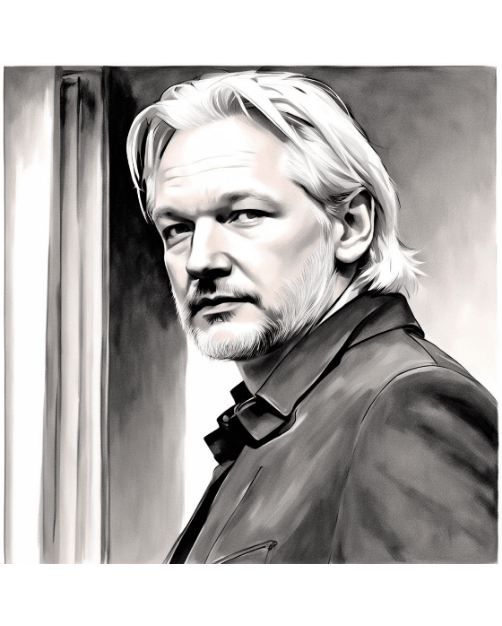




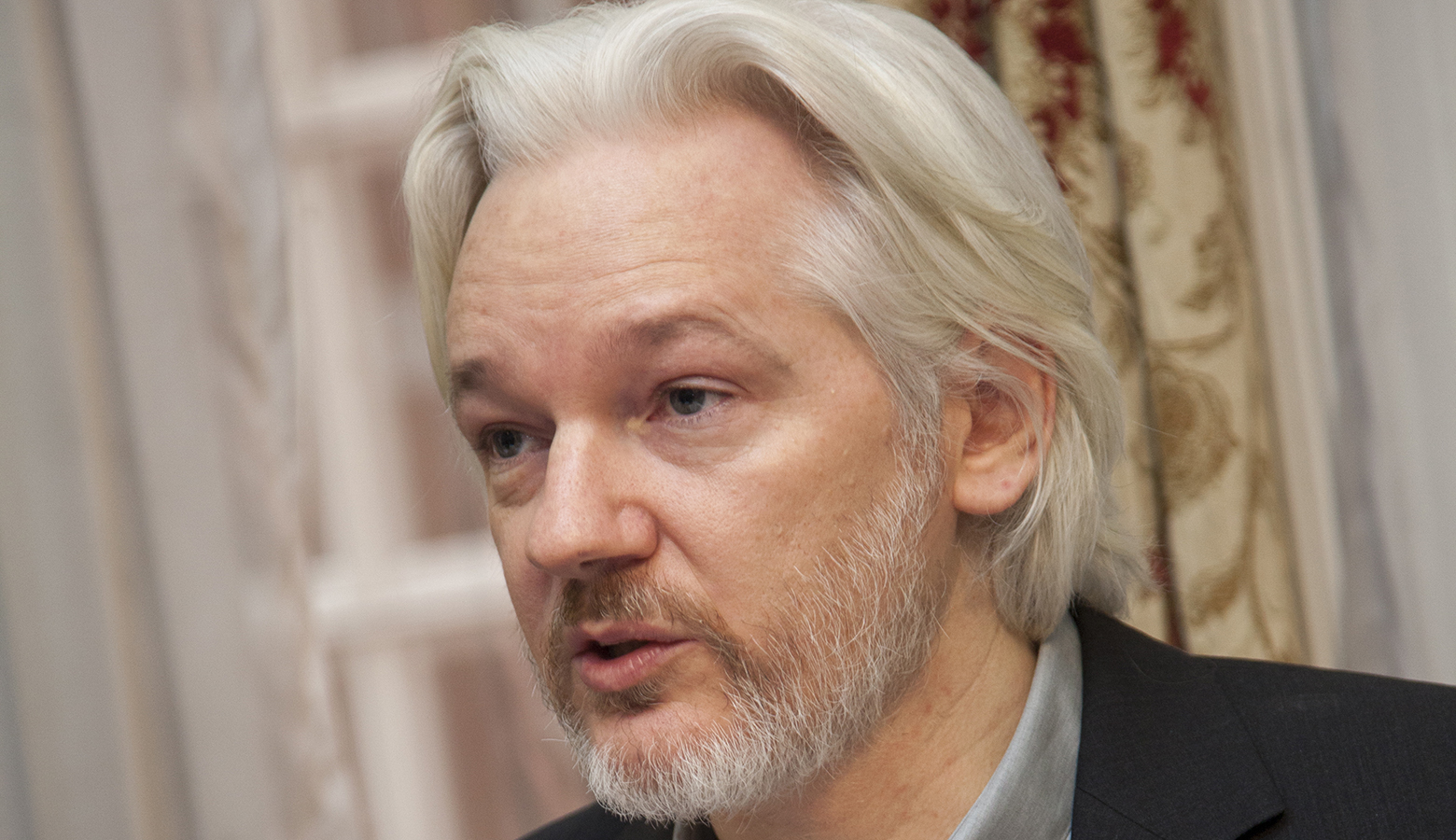






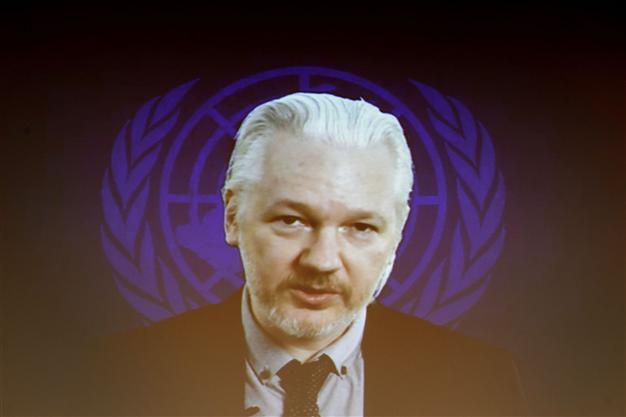
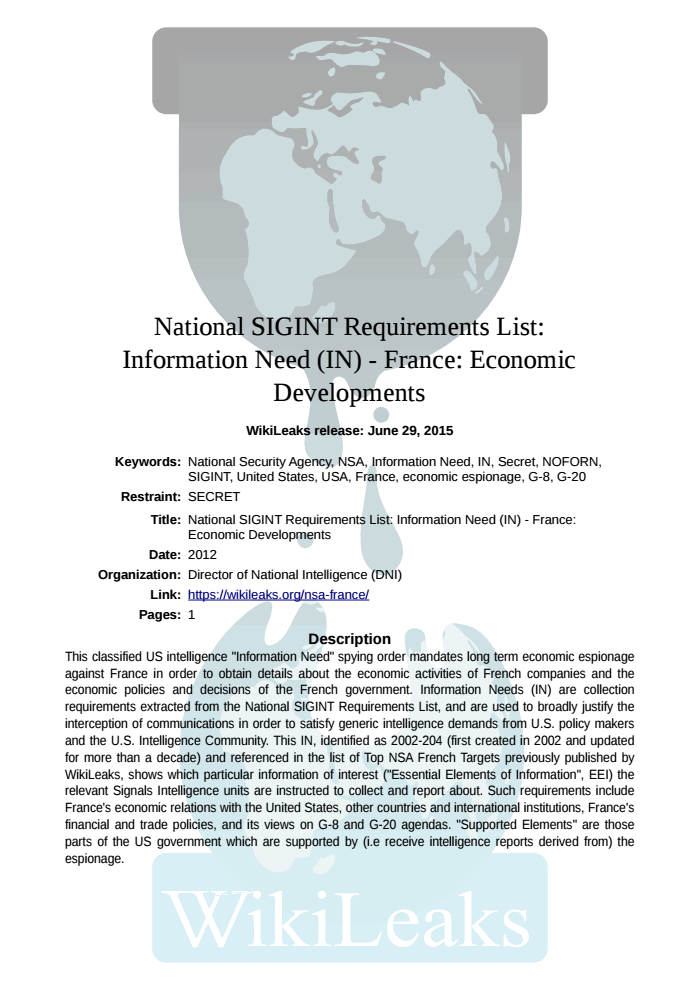
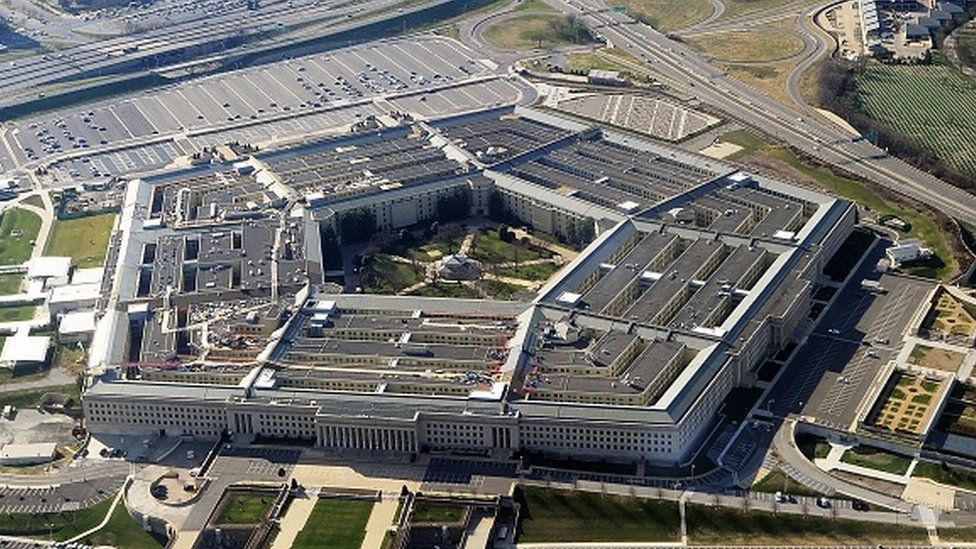
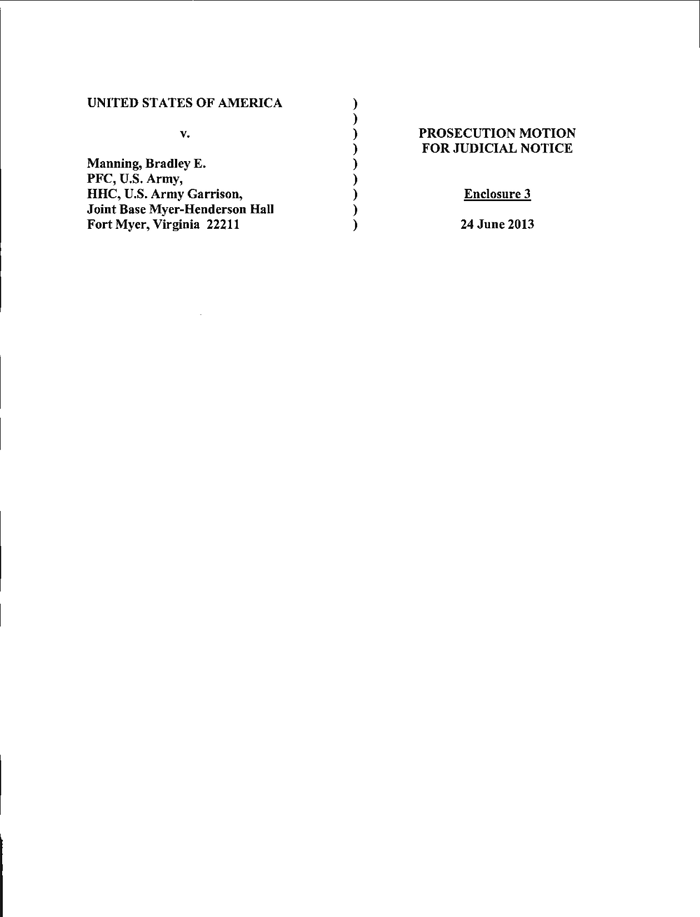













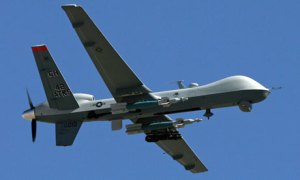







![[Image]](https://i0.wp.com/cryptome.org/2012-info/assange-juliets/assange-boundary.jpg)
![[Image]](https://i0.wp.com/cryptome.org/2012-info/assange-juliets/assange-boundary3.jpg)
![[Image]](https://i0.wp.com/cryptome.org/2012-info/assange-juliets/assange-boundary5.jpg)
![[Image]](https://i0.wp.com/cryptome.org/2012-info/assange-juliets/assange-boundary4.jpg)

![[Image]](https://i0.wp.com/cryptome.org/2012-info/assange-juliets/assange-pulpit-13.jpg)
![[Image]](https://i0.wp.com/cryptome.org/2012-info/assange-juliets/assange-pulpit-12.jpg)
![[Image]](https://i0.wp.com/cryptome.org/2012-info/assange-juliets/assange-pulpit-11.jpg)
![[Image]](https://i0.wp.com/cryptome.org/2012-info/assange-juliets/assange-pulpit-09.jpg)
![[Image]](https://i0.wp.com/cryptome.org/2012-info/assange-juliets/assange-pulpit-10.jpg)
![[Image]](https://i0.wp.com/cryptome.org/2012-info/assange-juliets/assange-pulpit-07.jpg)
![[Image]](https://i0.wp.com/cryptome.org/2012-info/assange-juliets/assange-pulpit-06.jpg)
![[Image]](https://i0.wp.com/cryptome.org/2012-info/assange-juliets/assange-pulpit-04.jpg)
![[Image]](https://i0.wp.com/cryptome.org/2012-info/assange-juliets/assange-pulpit-05.jpg)
![[Image]](https://i0.wp.com/cryptome.org/2012-info/assange-juliets/assange-pulpit-08.jpg)
![[Image]](https://i0.wp.com/cryptome.org/2012-info/assange-juliets/assange-pulpit-03.jpg)
![[Image]](https://i0.wp.com/cryptome.org/2012-info/assange-juliets/assange-pulpit-02.jpg)
![[Image]](https://i0.wp.com/cryptome.org/2012-info/assange-hovel/pict26.jpg)
![[Image]](https://i0.wp.com/cryptome.org/2012-info/assange-hovel/pict22.jpg)
![[Image]](https://i0.wp.com/cryptome.org/2012-info/assange-hovel/pict27.jpg)
![[Image]](https://i0.wp.com/cryptome.org/2012-info/assange-hovel/pict28.jpg)
![[Image]](https://i0.wp.com/cryptome.org/2012-info/assange-hovel/pict29.jpg)
![[Image]](https://i0.wp.com/cryptome.org/2012-info/assange-hovel/pict30.jpg)
![[Image]](https://i0.wp.com/cryptome.org/2012-info/assange-hovel/pict17.jpg)
![[Image]](https://i0.wp.com/cryptome.org/2012-info/assange-hovel/pict25.jpg)
![[Image]](https://i0.wp.com/cryptome.org/2012-info/assange-hovel/pict20.jpg)
![[Image]](https://i0.wp.com/cryptome.org/2012-info/assange-hovel/pict15.jpg)
![[Image]](https://i0.wp.com/cryptome.org/2012-info/assange-hovel/pict11.jpg)
![[Image]](https://i0.wp.com/cryptome.org/2012-info/assange-hovel/pict16.jpg)
![[Image]](https://i0.wp.com/cryptome.org/2012-info/assange-hovel/pict24.jpg)
![[Image]](https://i0.wp.com/cryptome.org/2012-info/assange-hovel/pict10.jpg)
![[Image]](https://i0.wp.com/cryptome.org/2012-info/assange-hovel/pict6.jpg)
![[Image]](https://i0.wp.com/cryptome.org/2012-info/assange-hovel/pict7.jpg)
![[Image]](https://i0.wp.com/cryptome.org/2012-info/assange-hovel/pict8.jpg)
![[Image]](https://i0.wp.com/cryptome.org/2012-info/assange-hovel/pict13.jpg)
![[Image]](https://i0.wp.com/cryptome.org/2012-info/assange-hovel/pict18.jpg)
![[Image]](https://i0.wp.com/cryptome.org/2012-info/assange-hovel/pict12.jpg)
![[Image]](https://i0.wp.com/cryptome.org/2012-info/assange-hovel/pict14.jpg)
![[Image]](https://i0.wp.com/cryptome.org/2012-info/assange-hovel/pict19.jpg)
![[Image]](https://i0.wp.com/cryptome.org/2012-info/assange-hovel/pict23.jpg)
![[Image]](https://i0.wp.com/cryptome.org/2012-info/assange-hovel/pict21.jpg)


![[Image]](https://i0.wp.com/cryptome.org/2012/06/wikileaks-trap1.jpg)
![[Image]](https://i0.wp.com/cryptome.org/2012/06/wikileaks-trap2.jpg)
![[Image]](https://i0.wp.com/cryptome.org/2012-info/assange-casa/pict22.jpg)
![[Image]](https://i0.wp.com/cryptome.org/2012-info/assange-casa/pict23.jpg)
![[Image]](https://i0.wp.com/cryptome.org/2012-info/assange-casa/pict25.jpg)
![[Image]](https://i0.wp.com/cryptome.org/2012-info/assange-casa/pict26.jpg)
![[Image]](https://i0.wp.com/cryptome.org/2012-info/assange-casa/pict27.jpg)
![[Image]](https://i0.wp.com/cryptome.org/2012-info/assange-casa/pict24.jpg)
![[Image]](https://i0.wp.com/cryptome.org/2012-info/assange-casa/pict21.jpg)
![[Image]](https://i0.wp.com/cryptome.org/2012-info/assange-casa/assange-ambassador.jpg)
![[Image]](https://i0.wp.com/cryptome.org/2012-info/assange-casa/pict18.jpg)
![[Image]](https://i0.wp.com/cryptome.org/2012-info/assange-casa/pict19.jpg)
![[Image]](https://i0.wp.com/cryptome.org/2012-info/assange-casa/pict20.jpg)
![[Image]](https://i0.wp.com/cryptome.org/2012-info/assange-casa/pict17.jpg)
![[Image]](https://i0.wp.com/cryptome.org/2012-info/assange-casa/pict13.jpg)
![[Image]](https://i0.wp.com/cryptome.org/2012-info/assange-casa/pict14.jpg)
![[Image]](https://i0.wp.com/cryptome.org/2012-info/assange-casa/pict15.jpg)
![[Image]](https://i0.wp.com/cryptome.org/2012-info/assange-casa/pict16.jpg)
![[Image]](https://i0.wp.com/cryptome.org/2012-info/assange-casa/pict2.jpg)
![[Image]](https://i0.wp.com/cryptome.org/2012-info/assange-casa/pict3.jpg)
![[Image]](https://i0.wp.com/cryptome.org/2012-info/assange-casa/pict4.jpg)
![[Image]](https://i0.wp.com/cryptome.org/2012-info/assange-casa/pict0.jpg)
![[Image]](https://i0.wp.com/cryptome.org/2012-info/assange-casa/pict1.jpg)
![[Image]](https://i0.wp.com/cryptome.org/2012-info/assange-casa/pict5.jpg)
![[Image]](https://i0.wp.com/cryptome.org/2012-info/assange-casa/pict6.jpg)
![[Image]](https://i0.wp.com/cryptome.org/2012-info/assange-casa/pict7.jpg)
![[Image]](https://i0.wp.com/cryptome.org/2012-info/assange-casa/pict8.jpg)
![[Image]](https://i0.wp.com/cryptome.org/2012-info/assange-casa/pict9.jpg)
![[Image]](https://i0.wp.com/cryptome.org/2012-info/assange-casa/pict10.jpg)
![[Image]](https://i0.wp.com/cryptome.org/2012-info/assange-casa/pict11.jpg)
![[Image]](https://i0.wp.com/cryptome.org/2012-info/assange-casa/pict12.jpg)










![[Image]](https://i0.wp.com/cryptome.org/info/manning-protest/pict22.jpg) Army Pfc. Bradley Manning, left, is escorted out of a courthouse at Fort Meade, Md., Friday, Dec. 16, 2011, after the first day of a military hearing that will determine if he should face court-martial for his alleged role in the WikiLeaks classified leaks case. Manning is suspected of being the source in one of the largest unauthorized disclosures of classified information in U.S. history. (Cliff Owen)
Army Pfc. Bradley Manning, left, is escorted out of a courthouse at Fort Meade, Md., Friday, Dec. 16, 2011, after the first day of a military hearing that will determine if he should face court-martial for his alleged role in the WikiLeaks classified leaks case. Manning is suspected of being the source in one of the largest unauthorized disclosures of classified information in U.S. history. (Cliff Owen)![[Image]](https://i0.wp.com/cryptome.org/info/manning-protest/pict24.jpg) Army Pfc. Bradley Manning is escorted in handcuffs out of a courthouse in Fort Meade, Md., Friday, Dec. 16, 2011, after the first day of a military hearing that will determine if he should face court-martial for his alleged role in the WikiLeaks classified leaks case. Manning is suspected of being the source in one of the largest unauthorized disclosures of classified information in U.S. history. (Cliff Owen)
Army Pfc. Bradley Manning is escorted in handcuffs out of a courthouse in Fort Meade, Md., Friday, Dec. 16, 2011, after the first day of a military hearing that will determine if he should face court-martial for his alleged role in the WikiLeaks classified leaks case. Manning is suspected of being the source in one of the largest unauthorized disclosures of classified information in U.S. history. (Cliff Owen)![[Image]](https://i0.wp.com/cryptome.org/info/manning-protest/pict26.jpg) Pfc. Bradley Manning is escorted from his his Article 32 hearing December 16, 2011 in Fort Meade, Maryland. Manning is accused of disclosing more than 260,000 diplomatic cables, more than 90,000 intelligence reports on the war in Afghanistan and one video of a military helicopter attack to WikiLeaks, a Web site dedicated to publishing secret documents. Getty
Pfc. Bradley Manning is escorted from his his Article 32 hearing December 16, 2011 in Fort Meade, Maryland. Manning is accused of disclosing more than 260,000 diplomatic cables, more than 90,000 intelligence reports on the war in Afghanistan and one video of a military helicopter attack to WikiLeaks, a Web site dedicated to publishing secret documents. Getty![[Image]](https://i0.wp.com/cryptome.org/info/manning-protest/pict25.jpg) Army security offices stand watch moments before Army Pfc. Bradley Manning is escorted out of a courthouse in Fort Meade, Md., Friday, Dec. 16, 2011, after the first day of a military hearing that will determine if he should face court-martial for his alleged role in the WikiLeaks classified leaks case. Manning is suspected of being the source in one of the largest unauthorized disclosures of classified information in U.S. history. (Cliff Owen)
Army security offices stand watch moments before Army Pfc. Bradley Manning is escorted out of a courthouse in Fort Meade, Md., Friday, Dec. 16, 2011, after the first day of a military hearing that will determine if he should face court-martial for his alleged role in the WikiLeaks classified leaks case. Manning is suspected of being the source in one of the largest unauthorized disclosures of classified information in U.S. history. (Cliff Owen)![[Image]](https://i0.wp.com/cryptome.org/info/manning-protest/pict20.jpg) In this courtroom sketch, Army Pfc. Bradley Manning, second from left, sits as his attorney, David E. Coombs, speaks during a military hearing in Fort Meade, Md. , Friday, Dec. 16, 2011, that will determine if Manning should face court-martial for his alleged role in the WikiLeaks classified leaks case. Manning is suspected of being the source in one of the largest unauthorized disclosures of classified information in U.S. history. AP
In this courtroom sketch, Army Pfc. Bradley Manning, second from left, sits as his attorney, David E. Coombs, speaks during a military hearing in Fort Meade, Md. , Friday, Dec. 16, 2011, that will determine if Manning should face court-martial for his alleged role in the WikiLeaks classified leaks case. Manning is suspected of being the source in one of the largest unauthorized disclosures of classified information in U.S. history. AP![[Image]](https://i0.wp.com/cryptome.org/info/manning-protest/pict21.jpg) David E. Coombs, attorney for Army Pfc. Bradley Manning, right, leaves a courthouse in Fort Meade, Md. , Friday, Dec. 16, 2011, during a recess in a military hearing that will determine if Manning should face court-martial for his alleged role in the WikiLeaks classified leaks case. Manning is suspected of being the source in one of the largest unauthorized disclosures of classified information in U.S. history. AP
David E. Coombs, attorney for Army Pfc. Bradley Manning, right, leaves a courthouse in Fort Meade, Md. , Friday, Dec. 16, 2011, during a recess in a military hearing that will determine if Manning should face court-martial for his alleged role in the WikiLeaks classified leaks case. Manning is suspected of being the source in one of the largest unauthorized disclosures of classified information in U.S. history. AP![[Image]](https://i0.wp.com/cryptome.org/info/manning-protest/pict1.jpg) Protestors supporting Pfc. Bradley Manning march outside the gate of Ft. Meade, Md., Friday, Dec. 16, 2011, where Manning will be attending a hearing to determine if he will be court martialed. (Susan Walsh)
Protestors supporting Pfc. Bradley Manning march outside the gate of Ft. Meade, Md., Friday, Dec. 16, 2011, where Manning will be attending a hearing to determine if he will be court martialed. (Susan Walsh)![[Image]](https://i0.wp.com/cryptome.org/info/manning-protest/pict2.jpg) Protestors supporting Pfc. Bradley Manning gather outside Ft. Meade, Md., Friday, Dec. 16, 2011, where Manning will be attending a hearing to determine if he will be court martialed. The U.S. military is making its case for why Manning should be court-martialed on charges of endangering national security by stealing and leaking an enormous trove of government secrets. (Susan Walsh)
Protestors supporting Pfc. Bradley Manning gather outside Ft. Meade, Md., Friday, Dec. 16, 2011, where Manning will be attending a hearing to determine if he will be court martialed. The U.S. military is making its case for why Manning should be court-martialed on charges of endangering national security by stealing and leaking an enormous trove of government secrets. (Susan Walsh)![[Image]](https://i0.wp.com/cryptome.org/info/manning-protest/pict3.jpg) Protestors supporting Bradley Manning gather outside Ft. Meade, Md., Friday, Dec. 16, 2011, where Manning will be attending a hearing to determine if he will be court martialed. (Susan Walsh)
Protestors supporting Bradley Manning gather outside Ft. Meade, Md., Friday, Dec. 16, 2011, where Manning will be attending a hearing to determine if he will be court martialed. (Susan Walsh)![[Image]](https://i0.wp.com/cryptome.org/info/manning-protest/pict4.jpg) Richard Ochs of Baltimore, Md., protests outside of Ft. Meade, Md., Friday, Dec. 16, 2011, to support Pfc. Bradley Manning who will be attending a hearing to determine if he will be court martialed. (Susan Walsh)
Richard Ochs of Baltimore, Md., protests outside of Ft. Meade, Md., Friday, Dec. 16, 2011, to support Pfc. Bradley Manning who will be attending a hearing to determine if he will be court martialed. (Susan Walsh)![[Image]](https://i0.wp.com/cryptome.org/info/manning-protest/pict5.jpg) A soldier stands guard at a roadblock outside of a courthouse in Fort Meade, Md., Friday, Dec. 16, 2011, during a military hearing that will determine if Army Pfc. Bradley Manning should face court-martial for his alleged role in the WikiLeaks classified leaks case. Manning is suspected of being the source in one of the largest unauthorized disclosures of classified information in U.S. history. (Patrick Semansky)
A soldier stands guard at a roadblock outside of a courthouse in Fort Meade, Md., Friday, Dec. 16, 2011, during a military hearing that will determine if Army Pfc. Bradley Manning should face court-martial for his alleged role in the WikiLeaks classified leaks case. Manning is suspected of being the source in one of the largest unauthorized disclosures of classified information in U.S. history. (Patrick Semansky)![[Image]](https://i0.wp.com/cryptome.org/info/manning-protest/pict6.jpg) Dave Eberhardt of Baltimore, Md., protests outside Ft. Meade, Md., Friday, Dec. 16, 2011, in support Pfc. Bradley Manning. The U.S. military is making its case for why Manning should be court-martialed on charges of endangering national security by stealing and leaking an enormous trove of government secrets. (Susan Walsh)
Dave Eberhardt of Baltimore, Md., protests outside Ft. Meade, Md., Friday, Dec. 16, 2011, in support Pfc. Bradley Manning. The U.S. military is making its case for why Manning should be court-martialed on charges of endangering national security by stealing and leaking an enormous trove of government secrets. (Susan Walsh)![[Image]](https://i0.wp.com/cryptome.org/info/manning-protest/pict18.jpg) Supporters of Pfc. Bradley Manning walk away after attending his Article 32 hearing, on December 16, 2011 in Fort Meade, Maryland. Manning is accused of disclosing more than 260,000 diplomatic cables, more than 90,000 intelligence reports on the war in Afghanistan and one video of a military helicopter attack to WikiLeaks, a Web site dedicated to publishing secret documents. Getty
Supporters of Pfc. Bradley Manning walk away after attending his Article 32 hearing, on December 16, 2011 in Fort Meade, Maryland. Manning is accused of disclosing more than 260,000 diplomatic cables, more than 90,000 intelligence reports on the war in Afghanistan and one video of a military helicopter attack to WikiLeaks, a Web site dedicated to publishing secret documents. Getty![[Image]](https://i0.wp.com/cryptome.org/info/manning-protest/pict19.jpg) Military police talk to supprters of Pfc. Bradley Manning after they attended his Article 32 hearing December 16, 2011 in Fort Meade, Maryland. Pfc. Manning is accused of disclosing more than 260,000 diplomatic cables, more than 90,000 intelligence reports on the war in Afghanistan and one video of a military helicopter attack to WikiLeaks, a Web site dedicated to publishing secret documents. Getty
Military police talk to supprters of Pfc. Bradley Manning after they attended his Article 32 hearing December 16, 2011 in Fort Meade, Maryland. Pfc. Manning is accused of disclosing more than 260,000 diplomatic cables, more than 90,000 intelligence reports on the war in Afghanistan and one video of a military helicopter attack to WikiLeaks, a Web site dedicated to publishing secret documents. Getty![[Image]](https://i0.wp.com/cryptome.org/info/manning-protest/pict7.jpg) People walk into a courthouse in Fort Meade, Md., Friday, Dec. 16, 2011, for a military hearing that will determine if Army Pfc. Bradley Manning should face court-martial for his alleged role in the WikiLeaks classified leaks case. Manning is suspected of being the source in one of the largest unauthorized disclosures of classified information in U.S. history. (Patrick Semansky)
People walk into a courthouse in Fort Meade, Md., Friday, Dec. 16, 2011, for a military hearing that will determine if Army Pfc. Bradley Manning should face court-martial for his alleged role in the WikiLeaks classified leaks case. Manning is suspected of being the source in one of the largest unauthorized disclosures of classified information in U.S. history. (Patrick Semansky)
![[Image]](https://i0.wp.com/cryptome.org/info/manning-protest/pict8.jpg)
![[Image]](https://i0.wp.com/cryptome.org/info/manning-protest/pict9.jpg) Police officers from U.S. Army Fort George G. Meade walk outside the base gates to talk with journalists and demonstrators protesting in supprt of U.S. Army Private Bradley Manning December 18, 2011 in Fort Meade, Maryland. Manning is accused of disclosing more than 260,000 diplomatic cables, more than 90,000 intelligence reports on the war in Afghanistan and one video of a military helicopter attack to WikiLeaks, a Web site dedicated to publishing secret documents. Getty
Police officers from U.S. Army Fort George G. Meade walk outside the base gates to talk with journalists and demonstrators protesting in supprt of U.S. Army Private Bradley Manning December 18, 2011 in Fort Meade, Maryland. Manning is accused of disclosing more than 260,000 diplomatic cables, more than 90,000 intelligence reports on the war in Afghanistan and one video of a military helicopter attack to WikiLeaks, a Web site dedicated to publishing secret documents. Getty![[Image]](https://i0.wp.com/cryptome.org/info/manning-protest/pict10.jpg) Supporters of U.S. Army Private Bradley Manning, an Army intelligence analyst, hold vigil outside the gates of U.S. Army Fort George G. Meade where Manning’s Article 32 preliminary hearing will begin December 18, 2011 in Fort Meade, Maryland. Manning is accused of disclosing more than 260,000 diplomatic cables, more than 90,000 intelligence reports on the war in Afghanistan and one video of a military helicopter attack to WikiLeaks, a Web site dedicated to publishing secret documents. Getty
Supporters of U.S. Army Private Bradley Manning, an Army intelligence analyst, hold vigil outside the gates of U.S. Army Fort George G. Meade where Manning’s Article 32 preliminary hearing will begin December 18, 2011 in Fort Meade, Maryland. Manning is accused of disclosing more than 260,000 diplomatic cables, more than 90,000 intelligence reports on the war in Afghanistan and one video of a military helicopter attack to WikiLeaks, a Web site dedicated to publishing secret documents. Getty![[Image]](https://i0.wp.com/cryptome.org/info/manning-protest/pict11.jpg) A helicopter from the Anne Arundel County Sheriff’s Office circles above supporters of U.S. Army Private Bradley Manning, an Army intelligence analyst, as they hold vigil outside the gates of U.S. Army Fort George G. Meade, where Manning’s Article 32 preliminary hearing is being held, December 18, 2011 in Fort Meade, Maryland. Manning is accused of disclosing more than 260,000 diplomatic cables, more than 90,000 intelligence reports on the war in Afghanistan and one video of a military helicopter attack to WikiLeaks, a Web site dedicated to publishing secret documents. Getty
A helicopter from the Anne Arundel County Sheriff’s Office circles above supporters of U.S. Army Private Bradley Manning, an Army intelligence analyst, as they hold vigil outside the gates of U.S. Army Fort George G. Meade, where Manning’s Article 32 preliminary hearing is being held, December 18, 2011 in Fort Meade, Maryland. Manning is accused of disclosing more than 260,000 diplomatic cables, more than 90,000 intelligence reports on the war in Afghanistan and one video of a military helicopter attack to WikiLeaks, a Web site dedicated to publishing secret documents. Getty![[Image]](https://i0.wp.com/cryptome.org/info/manning-protest/pict12.jpg) A military personnel directs a group of people outside the courthouse at Fort Meade, Maryland during the U.S. vs Private Bradley E. Manning Article 32 hearing December 16, 2011. An Army intelligence analyst suspected in the biggest leak of classified U.S. documents in history makes his first court appearance on Friday accused of multiple charges including aiding the enemy, which could bring life imprisonment. Reuters
A military personnel directs a group of people outside the courthouse at Fort Meade, Maryland during the U.S. vs Private Bradley E. Manning Article 32 hearing December 16, 2011. An Army intelligence analyst suspected in the biggest leak of classified U.S. documents in history makes his first court appearance on Friday accused of multiple charges including aiding the enemy, which could bring life imprisonment. Reuters![[Image]](https://i0.wp.com/cryptome.org/info/manning-protest/pict13.jpg) Supporters of U.S. Army Private Bradley Manning, an Army intelligence analyst, hold vigil outside the gates of U.S. Army Fort George G. Meade where Manning’s Article 32 preliminary hearing will begin December 18, 2011 in Fort Meade, Maryland. Manning is accused of disclosing more than 260,000 diplomatic cables, more than 90,000 intelligence reports on the war in Afghanistan and one video of a military helicopter attack to WikiLeaks, a Web site dedicated to publishing secret documents. Getty
Supporters of U.S. Army Private Bradley Manning, an Army intelligence analyst, hold vigil outside the gates of U.S. Army Fort George G. Meade where Manning’s Article 32 preliminary hearing will begin December 18, 2011 in Fort Meade, Maryland. Manning is accused of disclosing more than 260,000 diplomatic cables, more than 90,000 intelligence reports on the war in Afghanistan and one video of a military helicopter attack to WikiLeaks, a Web site dedicated to publishing secret documents. Getty![[Image]](https://i0.wp.com/cryptome.org/info/manning-protest/pict16.jpg) Journalists stand outside the courthouse at Fort Meade, Maryland during the U.S. vs Private Bradley E. Manning Article 32 hearing December 16, 2011. An Army intelligence analyst suspected in the biggest leak of classified U.S. documents in history makes his first court appearance on Friday accused of multiple charges including aiding the enemy, which could bring life imprisonment. Reuters
Journalists stand outside the courthouse at Fort Meade, Maryland during the U.S. vs Private Bradley E. Manning Article 32 hearing December 16, 2011. An Army intelligence analyst suspected in the biggest leak of classified U.S. documents in history makes his first court appearance on Friday accused of multiple charges including aiding the enemy, which could bring life imprisonment. Reuters![[Image]](https://i0.wp.com/cryptome.org/info/manning-protest/pict17.jpg) David E. Coombs, attorney for Army Pfc. Bradley Manning, leaves a courthouse in Fort Meade, Md. , Friday, Dec. 16, 2011, during a recess in a military hearing that will determine if Manning should face court-martial for his alleged role in the WikiLeaks classified leaks case. Manning is suspected of being the source in one of the largest unauthorized disclosures of classified information in U.S. history.
David E. Coombs, attorney for Army Pfc. Bradley Manning, leaves a courthouse in Fort Meade, Md. , Friday, Dec. 16, 2011, during a recess in a military hearing that will determine if Manning should face court-martial for his alleged role in the WikiLeaks classified leaks case. Manning is suspected of being the source in one of the largest unauthorized disclosures of classified information in U.S. history.







 US soldier Bradley Manning, left, who is accused of stealing the huge database of classified files released by the WikiLeaks website of Julian Assange, right. Photograph: Associated Press/AFP/Getty ImagesThe State Department and its Bureau of Diplomatic Security never took responsibility for their part in the loss of all those cables, never acknowledged their own mistakes or porous security measures. No one will ever be fired at State because of WikiLeaks – except, at some point, possibly me. Instead, State joined in the federal mugging of army Private Bradley Manning,
US soldier Bradley Manning, left, who is accused of stealing the huge database of classified files released by the WikiLeaks website of Julian Assange, right. Photograph: Associated Press/AFP/Getty ImagesThe State Department and its Bureau of Diplomatic Security never took responsibility for their part in the loss of all those cables, never acknowledged their own mistakes or porous security measures. No one will ever be fired at State because of WikiLeaks – except, at some point, possibly me. Instead, State joined in the federal mugging of army Private Bradley Manning, 






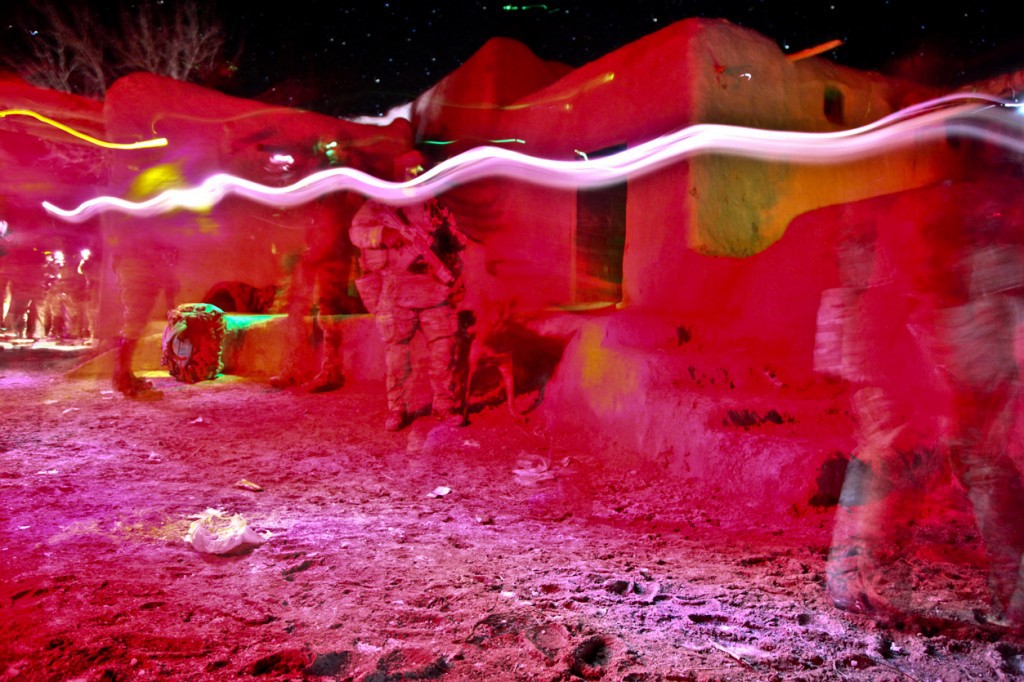













You must be logged in to post a comment.